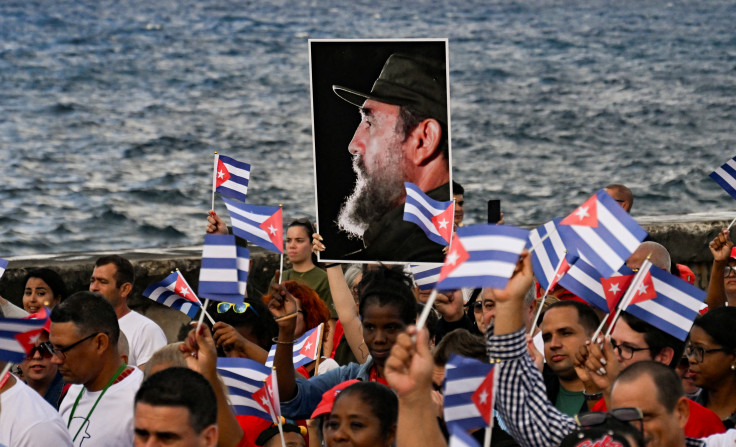
The Trump administration is planning to ramp up sanctions on Cuba as part of a maximum-pressure campaign to incite a regime-change on the island. The move could have severe consequences for Cuban residents.
In a Miami event last week, special envoy for Latin America, Mauricio Claver-Carone said the administration perceives a "historic opportunity in Cuba for political opening and political transition."
This is because the administration considers the regime in Havana to be at its weakest moment in decades. The island's economy has been in a downward spiral in recent years, and the country's ruler, Raul Castro, is 94.
"The Cuban government is probably at its weakest point that we've ever seen. People always say that, but this time it really is," Claver-Carone told Politico in February. "And the desire for change of the Cuban people is overwhelming. Even its leadership structure knows that change is inevitable."
According to a new report by the Miami Herald, the Trump administration is seeking to impose new sanctions inspired by the ones enacted on Venezuela during the president's first term in office. Officials have been discussing how to update the existing decades-old embargo against Cuba and close "loopholes" to avoid "the ups and downs, pressures and non pressures" that have hindered its success, Claver-Carone said.
"The tools used against Cuba are very outdated," he said. "Even the sanctions themselves are based on old laws that sometimes have no secondary effects."
Travel and remittances would likely be at the chopping blocks as part of the new sanctions. Remittances and online supermarkets have been a lifeline for many Cubans— the government sells groceries and other necessities in dollar stores but pays monthly salaries in pesos worth around $15, and much less to those on pensions.
Secretary of State Marco Rubio has already moved to ban a company controlled by the Cuban military from processing remittances in partnership with Western Union, prompting the U.S. money-transfer giant to withdraw from Cuba. A similar measure against another Cuban company during the first Trump administration brought significant losses for the military's economic arm, according to the Herald.
The broad restrictions the administration is contemplating would also hamper discreet efforts by religious organizations and other non-profits to send humanitarian aid to the island. As economic conditions have deteriorated on the island, donations to Ciba have jumped from $36.5 million in 2023 to $67 million last year, according to figures compiled by the U.S.-Cuba Trade and Economic Council.
"Shutting down U.S. flights and informal remittance channels would harm innocent Cuban families far more than communist party elites with global ties who can travel anywhere else," said Ricardo Herrero, executive director of the Cuba Study Group, a Cuban American group based in Washington. "Prohibiting Cuban Americans from supporting their loved ones in Cuba won't topple the Cuban regime nor usher in democracy. It will only stoke migration to third countries and hasten the island's descent into a failed state."
Administration officials have recognized how these sanctions could affect Cubans on the island. Speaking at an event at Miami-Dade College, Claver-Carone warned that Cubans and Venezuelans should prepare for "short-term pain" as the administration gears up to intensify their sanctions. He also claimed that Maduro is mirroring a strategy used by Fidel Castro, when he freed Cubans from prison and sent them to the U.S. as part of the tens of thousands who arrived in Florida as part of the Mariel boatlift.
"We understand there are challenges, and it's painful. There's short-term pain," the official said. "But the other thing all these regimes and dictators have also learned, starting with Cuba, is that the easiest thing to do is export your problem. So the way you have totalitarian control is, you don't like it, you leave. And that's what happened in Venezuela."
"I can tell you this as a member of the Cuban American community, and it's been 60 years. If you don't want to be 60 years in exile, then cut it off now, do the short-term sacrifices now, because if not, they're not going anywhere," the official added.
© 2025 Latin Times. All rights reserved. Do not reproduce without permission.




